Filter by

The realities and futures of work
What do we know about the current realities of work and its likely futures? What choices must we make and how will they affect those futures? Many books about the future of work start by talking about the latest technology, and focus on how technology is going to change the way we work. And there is no doubt that technology will have huge impacts. However, to really understand the direction in …
- Edition
- -
- ISBN/ISSN
- 9781760463113
- Collation
- xvi + 406 p
- Series Title
- -
- Call Number
- 331 PEE r
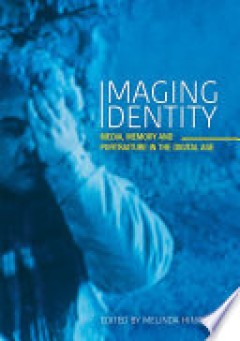
Imaging identity: media, memory and portraiture in the digital age
Imaging Identity presents potent reflections on the human condition through the prism of portraiture. Taking digital imaging technologies and the dynamic and precarious dimensions of contemporary identity as critical reference points, these essays consider why portraits continue to have such galvanising appeal and perform fundamental work across so many social settings. This multidisciplinary …
- Edition
- -
- ISBN/ISSN
- 9781760460419
- Collation
- xviii + 146 p
- Series Title
- -
- Call Number
- 757 HIN i

Goodna girls: a history of children in a Queensland Mental Asylum
Goodna Girls tells the story of children incarcerated in Wolston Park Hospital, an adult psychiatric facility in Queensland, Australia. It contains the personal testimonies of women who relate—in their own no-holds-barred style and often with irreverent humour—how they, as children, ended up in Wolston Park and how this affected their adult lives. The accounts of hospital staff who witnesse…
- Edition
- -
- ISBN/ISSN
- 9781760463915
- Collation
- xvi + 174 p
- Series Title
- Aboriginal History Monographs
- Call Number
- 362.709943 CHY g

Warping Time
Warping Time shows how narratives of the past influence what people believe about the present and future state of the world. In Benjamin Ginsberg and Jennifer Bachner’s simple experiments, in which the authors measured the impact of different stories their subjects heard about the past, these “history lessons” moved contemporary policy preferences by an average of 16 percentage points; fo…
- Edition
- -
- ISBN/ISSN
- 9780472076000
- Collation
- xiii, 158 p
- Series Title
- -
- Call Number
- -
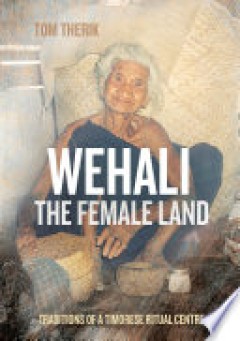
Wehali: The Female Land
Wehali defines itself as the ritual centre of the island of Timor. As a ritual centre, Wehali continues to be the residence of a figure of traditional authority on whom, in the 18th century, the Dutch conferred the title of Kaiser (Keizer) and to whom the Portuguese gave the title of Emperor (Imperador). At one time, Wehali was the centre of a network of tributary states, which both the Dutch a…
- Edition
- -
- ISBN/ISSN
- 9781760464851
- Collation
- -
- Series Title
- -
- Call Number
- 959.86

Sociology in Germany : a history
This open access book traces the development of sociology in Germany from the late 19th century to the present day, providing a concise overview of the main actors, institutional processes, theories, methods, topics and controversies. Throughout the book, the author relates the discipline’s history to its historical, economic, political and cultural contexts. The book begins with sociology in…
- Edition
- -
- ISBN/ISSN
- 9783030718664
- Collation
- -
- Series Title
- -
- Call Number
- 301.0943 MOE s
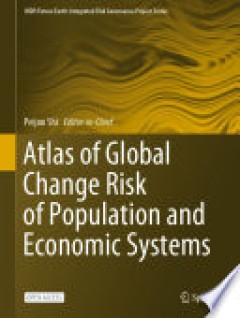
Atlas of global change risk of population and economic systems
This book is open access and illustrates the spatial distribution of the global change risk of population and economic systems with the maps of environment, global climate change, global population and economic systems, and global change risk. The risks of global change are mapped at 0.25 degree grid unit. The risk results and their contribution rates of the world at national level are unpreced…
- Edition
- -
- ISBN/ISSN
- 9789811666919
- Collation
- XXII, 278 p
- Series Title
- -
- Call Number
- 363.73874 SHI a
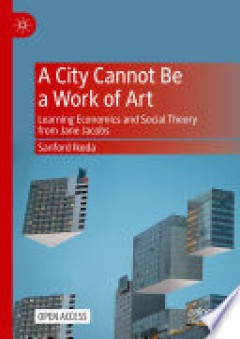
A city cannot be a work of art learning economics and social theory from jane…
This open access book connects Jane Jacobs's celebrated urban analysis to her ideas on economics and social theory. While Jacobs is a legend in the field of urbanism and famous for challenging and profoundly influencing urban planning and design, her theoretical contributions – although central to her criticisms of and proposals for public policy – are frequently overlooked even by her most…
- Edition
- -
- ISBN/ISSN
- 9789819953622
- Collation
- XXV, 400 p
- Series Title
- -
- Call Number
- 720.94 IKE a
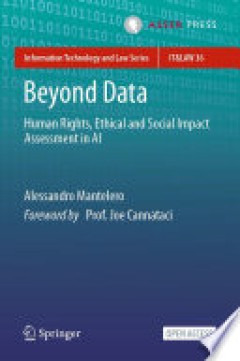
Beyond data : human rights, ethical and social impact assessment in AI
This open access book focuses on the impact of Artificial Intelligence (AI) on individuals and society from a legal perspective, providing a comprehensive risk-based methodological framework to address it. Building on the limitations of data protection in dealing with the challenges of AI, the author proposes an integrated approach to risk assessment that focuses on human rights and encompasses…
- Edition
- Ed. 1
- ISBN/ISSN
- 9789462655317
- Collation
- XXIII, 200
- Series Title
- -
- Call Number
- 343.0999 Man b

Data spaces design, deployment and future directions
This open access book aims to educate data space designers to understand what is required to create a successful data space. It explores cutting-edge theory, technologies, methodologies, and best practices for data spaces for both industrial and personal data and provides the reader with a basis for understanding the design, deployment, and future directions of data spaces. The book captures…
- Edition
- -
- ISBN/ISSN
- 9783030986360
- Collation
- XX, 357 p
- Series Title
- -
- Call Number
- 330 CUR d
 Computer Science, Information & General Works
Computer Science, Information & General Works  Philosophy & Psychology
Philosophy & Psychology  Religion
Religion  Social Sciences
Social Sciences  Language
Language  Pure Science
Pure Science  Applied Sciences
Applied Sciences  Art & Recreation
Art & Recreation  Literature
Literature  History & Geography
History & Geography